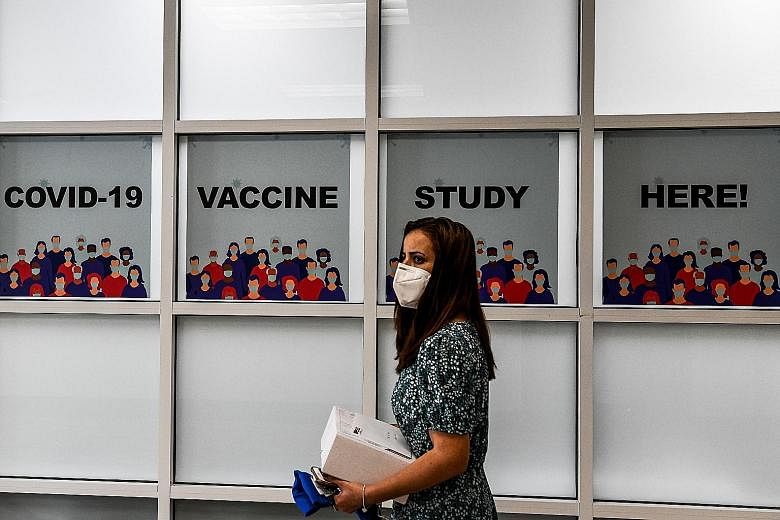WASHINGTON • The US Food and Drug Administration (FDA) has broadened its investigation of a serious illness in AstraZeneca's Covid-19 vaccine study and will look at data from earlier trials of similar vaccines developed by the same scientists, three sources familiar with the details told Reuters.
AstraZeneca's large, late-stage United States trial has remained on hold since Sept 6, after a study participant in Britain fell ill with what was believed to be a rare spinal inflammatory disorder called transverse myelitis.
The widened scope of the FDA probe raises the likelihood of additional delays for what has been one of the most advanced Covid-19 vaccine candidates in development.
The requested data was expected to arrive this week, after which the FDA would need time to analyse it, two of the sources said.
The Trump administration has pledged US$1.2 billion (S$1.64 billion) to support development of the AstraZeneca vaccine and secure 300 million doses for the US.
Regulators in Britain, Brazil, India and South Africa have allowed AstraZeneca to resume its clinical trials there. The FDA, however, wants to determine whether similar side effects emerged in trials of other vaccines designed by AstraZeneca's coronavirus vaccine partner, researchers at Oxford University, the sources said. That does not mean the agency believes there were safety issues associated with any of these vaccines, they added. "It just shows that the FDA is being thorough," said one of the sources.
AstraZeneca, in a statement, said: "We are continuing to work with the FDA to facilitate review of the information needed to make a decision regarding resumption of the US trial."
All of the vaccines it wants to review use a modified adenovirus as a vector to safely deliver genetic material from the target illnesses - flu, Middle East respiratory syndrome and other diseases - into the body to stimulate an immune system response to fight future infection.
While other vaccine developers have used human adenoviruses for such vaccines, the Oxford researchers chose an adenovirus found in chimpanzees. They felt this would reduce the likelihood that an individual's immune system would attack the vector virus due to prior exposure rather than the intended target.
REUTERS

